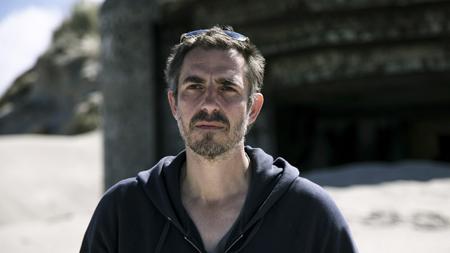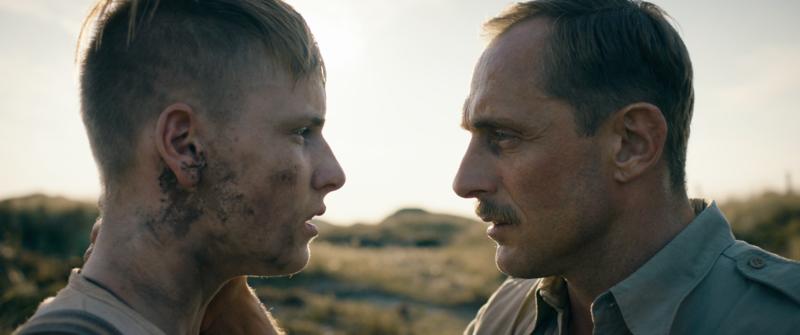For his third fictional feature, Danish writer-director Martin Zandvliet looks at a little known – and morally complex – chapter in Danish history, when German POWs (some merely teenagers) were forced to clear two million German landmines from the West Danish coast after the Germans evacuated at the end of World War II.
"It is a fictionalized story, but it's based on facts of how many boys were there, how many mines were there. It adds up to 2,000 people, and 900 of them blew up," Zandvliet says.
The director did his own research and then wrote the script over three years (mixing in other projects) and eventually decided that the focus of the story was not only the group of young German boys clearing the beaches, but also the Danish sergeant assigned to supervise their work.
It's more nuanced than black-and-white good guys and bad guys. "I wanted the main character to go through development and see him fighting against the system. It's not like he's a hero, he could have done more."
Danish actor Roland Møller steps up to his first leading role as the sergeant. Zandvliet was impressed. "He plays in a different kind of way where I believe in the words he says. I believe in his anger."
Inspire Debate about Mines
Zandvliet shot the film on one of the beaches where the landmines were cleared – it is now a military area. The shoot itself wasn't as harrowing as it looks on screen, thanks in part to the more than a dozen group of teenage boys on set. "The World Cup was on. They would disarm mines during the day and watch football at night," the director says with a laugh.
The beauty of the beaches contrast with the bodily horrors that follow landmine explosions. Zandvliet thought carefully about showing enough blood to bring home the danger inherent in the job, but without desensitising the audience to bloody accidents. "The first draft of the script was probably more horrible and horrifying, but then I toned it down eventually," he says.

Meanwhile, the director is curious to hear the reactions to "Land of Mine," which will certainly inspire debate not just about the lingering politics of World War II, but of relevant situations around the globe today.
"In every war, in every country, we have the aftermath after war. It's important that we learn to forgive or at least not see everybody as the enemy. That's very present in the life we live now. In Kosovo, Afghanistan, Syria – who is going to clear those mines?"
"We hope that 'Land of Mine' can help bring even more attention to this terrible weapon and create a global focus around it," says Zandvliet. "Maybe Roland Møller could act as Denmark's UN advocate against landmines. That would be great."
This interview is an abridged version of the one published in FILM Cannes Issue 2015, the Danish Film Institute's festival magazine.
Keep an eye out for our forthcoming online festival magazine, out late August, which includes an in-depth interview with the director.

